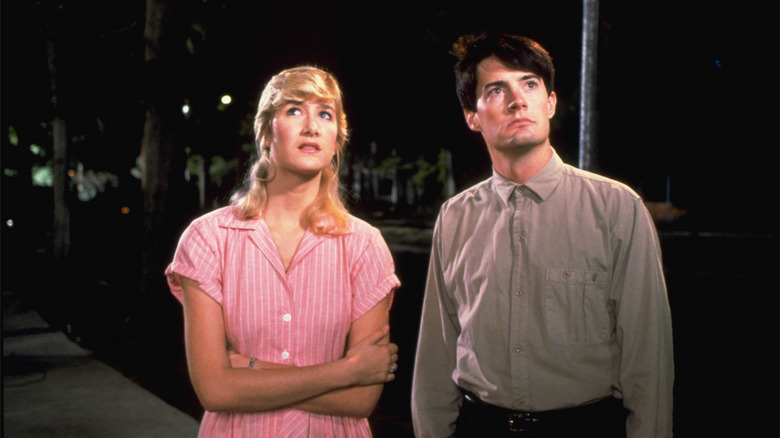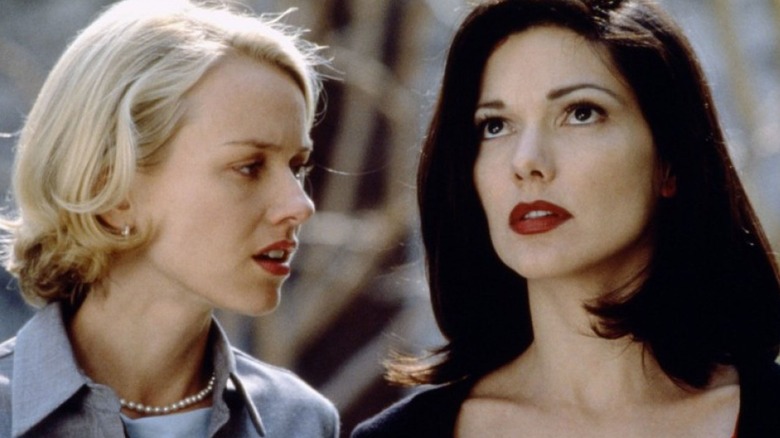Don't Ask David Lynch What His Films Are About
Whether or not art should be subject to explanation is an age-old debate, and some creators vehemently believe their work should speak for itself. One household name who falls firmly on this side of the fence is David Lynch. Lynch is known for mind-bending, surrealist projects like the television series "Twin Peaks" as well as films like "Mulholland Drive" and "Blue Velvet." His use of heavy symbolism and departure from traditional narrative structure leaves audiences itching for answers. It makes the refusal to explain his work all the more intriguing.
Lynch is of a similar school of thought as Werner Herzog, who believes cinema can bring about an "ecstatic truth" that cannot be found in reality or put into words (per the New Yorker). Cinema expresses something that cannot otherwise be articulated, and to try to explain a film in words would "reduce it, make it smaller," the "Twin Peaks" director told The Guardian. Lynch knows people are bound to ask him to talk about his work, but to him, "it's almost like a crime." His movies were written in "the language of film," and it's not going to translate into the English language. "The words are not there," and in trying to put a film into words, "it's going to lose [meaning]," the director explained.
The meaning is beyond words
It should come as no surprise to learn that David Lynch isn't particularly loquacious. He used to find interviews painful, but he has since said "they're not as traumatic as they were," though he still avoids discussing "the meaning of things," per ArtReview. He started his art career as a painter, "which is more of a wordless thing," but once he entered the film world, he was asked to discuss his work. "I didn't even realize that I couldn't talk until they asked me to do it," the filmmaker explained, "but I didn't want to say anything anyway. So it was okay."
The "Blue Velvet" director does not mean to deny his audience anything by refusing to explain his work — far from it. Instead, Lynch trusts his viewers to piece together the meaning behind his work for themselves. He presents clues for his audience to mull things over, analyze them, make their own conclusions, he told Criterion. From there, the viewer must let their "inner knowing" guide them. Comparing notes won't help either; "the knowing is too beautifully abstract" to communicate. The meaning of his films is inherently intuitive.
The audience should trust their interpretation
Although David Lynch places the utmost trust in his audience, he finds the audience doesn't trust themselves. In the case of his 2001 film "Mulholland Drive," he told Criterion viewers "know what Mulholland Dr. is to them, but they don't trust it. They want to have someone else tell them." For Lynch's part, he wishes audiences would have more faith in their own ideas. "That's the beautiful thing, to figure things out as a detective. Telling them robs them of the joy of thinking it through and feeling it through and coming to a conclusion."
Lynch's films been majorly influential without suffering from the explanations and qualifications of their creator. Lynch's philosophy is an apt one that has allowed generations of new fans to approach his films with fresh eyes. It gives his films an explicitly cinematic significance that can only be gleaned from watching it and cannot be found in an explainer article or a Wikipedia page. In an age where plot is so often spoiled and little is left to the imagination, Lynch's outlook is an inspired direction for the future of film.


